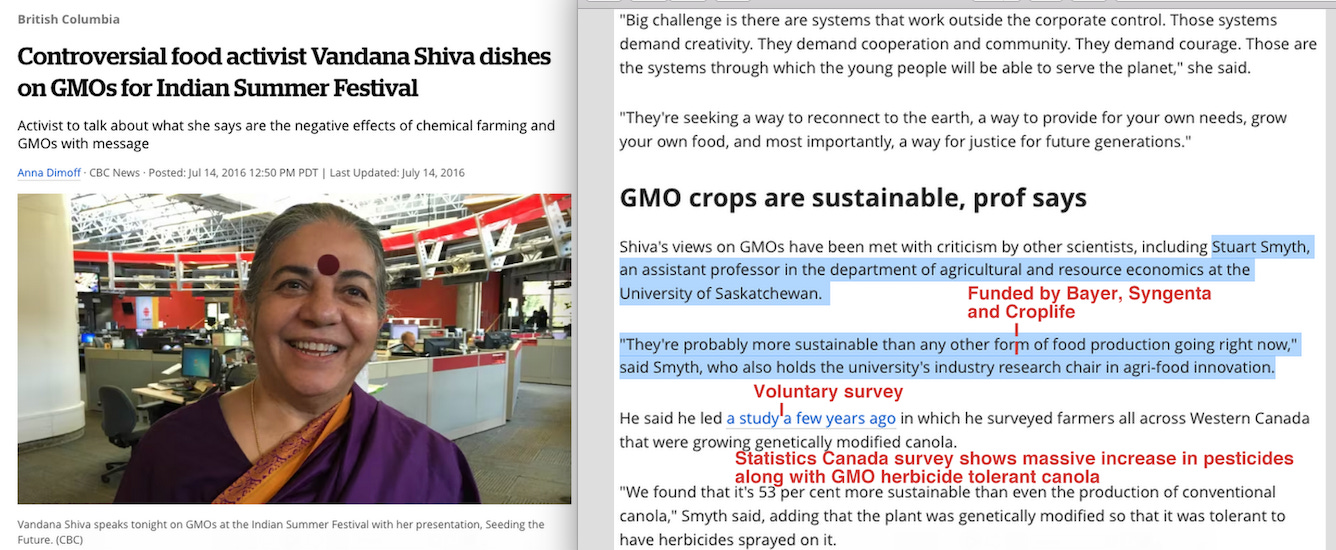Expert Class Breakdown
Industry-funded research chairs, from forestry to fish farms, are a fact of life in the expert ecosystem, and this raises big issues about trust.
The expert class has taken a beating in recent years.
It’s not a good situation for any society to be in. Frankly it is incredibly disturbing. But if we want to fix it, we need to understand where the “expert credibility” is being corrupted.
Obviously the official misinformation around Covid, from the actual conspiracy to mislead the public on its origins to whether vaccines would stop the spread to whether it is airborne, has played a big role in this trend.
But beyond that the examples are many.
Take Health Canada and it’s regulation of pesticides. If you can believe this, Health Canada recently approved Broflanilide, a persistent forever chemical that fits the definition of a PFAS. Health Canada’s documents show it causes ovarian cancer in rats and will hang out in soil indefinitely. The CBC wrote an article singing its praises as a new insecticide for potato farmers.
In other words, our health authorities and media approve contaminating farmland with the same class of chemical we are warned is an existential threat to humanity.
There are over 1400 PFAS-related pesticides on the market, along with things like glyphosate, that our experts tell us are an acceptable risk.
But who are the experts?
Dr. Stuart Smyth is one of the CBC’s go-to guys on agricultural topics and GMO’s. Mr. Smyth may technically work for the University of Saskatchewan but his research chair is funded by some of the largest pesticide and GMO seed companies on the planet- Bayer, Syngenta, and the pesticide industry lobby group Crop-Life. Of course the CBC has never disclosed the specifics of that, even when they use Smyth to discredit GMO skeptics like Vandana Shiva (who in contrast to Smyth is described as a “controversial food activist” in the headline).
Industry-funded research chairs, from forestry to fish farms, are a fact of life in the expert ecosystem, and this raises big issues about trust. A lot of times basic scientific facts are a commercial threat to corporate interests who fund the scientists. The truth and the financial incentive may be at odds with each other. You might think you are listening to an honest, independent professor, but they might be funded by the very industry they are commenting on. That’s a conflict of interest, regardless of how commonplace it is.
I don’t think our leadership, if that’s what you can call it, appreciates how all this is adding up.
Instead it elevates fact checkers and misinformation celebrities to clamp down on any information that it doesn’t like.
But you rarely see these “misinformation” warriors take on big industry. Look at Tim Caulfield. From his perch at the University of Alberta, I don’t think he’s ever questioned things like chronic chemical pollution, pesticide safety claims, let alone corruption in the pharmaceutical industry or the existential threat of gain of function research in virology that almost certainly killed 20-30 million of us. To the contrary he tells us to relax while he spreads pesticide and biotech industry misinformation.
Then we give him the Order of Canada.
Kind of like the CBC, the fact-checking industry punches down at concerned citizens and elevates industry-friendly narratives.
This obviously just makes the problem worse.
What is desperately needed is to get corporate dollars out of the universities and money out of science. Disciplines like forestry, fisheries, and agriculture, not to mention biotech, need to be directed towards one goal: the public good, not corporate profits.
Entrenching corporate money and interests in the academic expert class isn’t worth the breakdown of trust and expertise it is clearly contributing to.


